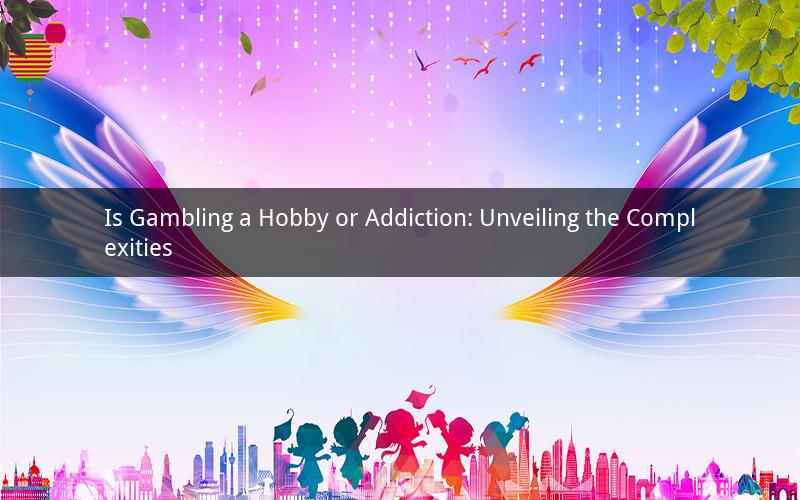
Introduction:
Gambling has been a topic of debate for centuries. Is it a mere hobby or a dangerous addiction? This article delves into the complexities surrounding gambling, exploring its nature, potential risks, and the psychological aspects involved. By examining various perspectives, we aim to shed light on whether gambling can be considered a hobby or an addiction.
1. Understanding Gambling:
Gambling is the act of betting something of value on an uncertain event with the intent of winning something of greater value. It encompasses a wide range of activities, including casinos, sports betting, lottery, poker, and online gambling. While some individuals engage in gambling for entertainment purposes, others may develop a more intense relationship with it.
1.1 Different Types of Gamblers:
a. Social Gamblers: These individuals engage in gambling for recreational purposes, typically with friends or family. They do so occasionally and within their means, without any negative consequences.
b. Problem Gamblers: Problem gamblers exhibit a pattern of gambling that leads to significant negative consequences. They may experience financial, emotional, and social problems as a result of their gambling behavior.
c. Compulsive Gamblers: Compulsive gamblers have an uncontrollable urge to gamble, often leading to severe consequences. They may continue to gamble despite knowing the negative outcomes.
2. The Psychological Aspect:
The psychological aspect plays a crucial role in determining whether gambling is a hobby or an addiction. Several psychological factors contribute to the development of gambling problems.
2.1 Psychological Factors:
a. Impulse Control: Individuals with poor impulse control may find it challenging to resist the temptation to gamble.
b. Stress: Gambling can be a coping mechanism for individuals dealing with stress, anxiety, or other psychological issues.
c. Reward-Seeking: The brain's reward system is activated during gambling, leading to a sense of excitement and satisfaction. This can trigger a desire for repeated gambling experiences.
d. Cognitive Dissonance: Gamblers may experience cognitive dissonance, where they rationalize their gambling behavior to justify its continuation despite negative consequences.
3. The Impact of Gambling:
The impact of gambling can vary widely depending on the individual's level of involvement. While some individuals may enjoy gambling as a hobby, others may face severe consequences.
3.1 Positive Aspects:
a. Entertainment: For many, gambling serves as a form of entertainment, providing excitement and enjoyment.
b. Social Interaction: Gambling can be a social activity, allowing individuals to bond with others and create memories.
c. Financial Gain: Some individuals may win money through gambling, which can be a source of financial gain.
3.2 Negative Aspects:
a. Financial Loss: One of the most significant risks of gambling is financial loss. Problem gamblers may accumulate substantial debt, leading to financial instability.
b. Emotional and Psychological Consequences: Problem gamblers may experience depression, anxiety, and other psychological issues as a result of their gambling behavior.
c. Social and Family Relationships: Gambling problems can strain relationships with family, friends, and loved ones, leading to social isolation.
d. Legal and Criminal Consequences: In some cases, gambling can lead to illegal activities, such as fraud or theft, to support the gambling habit.
4. Identifying Problem Gambling:
Identifying problem gambling is crucial for early intervention and prevention. Here are some signs and symptoms to look out for:
4.1 Signs of Problem Gambling:
a. Preoccupation with gambling: Constantly thinking about gambling, planning for the next gambling session, or reliving past gambling experiences.
b. Increasing the amount of money or time spent gambling: Feeling the need to gamble more to achieve the same level of excitement or to recover losses.
c. Lying to hide gambling behavior: Concealing the extent of gambling activities from family, friends, or employers.
d. Neglecting responsibilities: Failing to fulfill work, family, or academic obligations due to gambling.
e. Chasing losses: Trying to recover lost money by gambling more, often leading to even greater losses.
4.2 Seeking Help:
If you or someone you know is struggling with problem gambling, seeking help is essential. Various resources and support systems are available, including counseling, therapy, and support groups.
5. Conclusion:
Is gambling a hobby or an addiction? The answer lies in the individual's level of involvement and the consequences they face. While some individuals may enjoy gambling as a recreational activity, others may develop a more intense and harmful relationship with it. Understanding the psychological aspects and recognizing the signs of problem gambling can help individuals seek help and overcome their struggles.
Questions and Answers:
1. Q: Can gambling be considered a hobby for everyone?
A: No, gambling can be considered a hobby for some individuals, but not for everyone. It depends on the individual's level of involvement, the consequences they face, and their ability to control their gambling behavior.
2. Q: Is problem gambling always a sign of addiction?
A: While problem gambling is often associated with addiction, it is not always the case. Problem gambling can range from mild to severe, and not all problem gamblers necessarily have an addiction.
3. Q: Can stress or anxiety trigger problem gambling?
A: Yes, stress or anxiety can trigger problem gambling. Some individuals may turn to gambling as a coping mechanism to alleviate their psychological distress.
4. Q: Is it possible to overcome problem gambling on one's own?
A: While some individuals may be able to overcome problem gambling on their own, seeking professional help and support is often more effective. Therapy, counseling, and support groups can provide the necessary tools and guidance for recovery.
5. Q: Can gambling addiction be treated successfully?
A: Yes, gambling addiction can be treated successfully. With proper intervention, therapy, and support, individuals can overcome their addiction and lead a healthier, more fulfilling life.